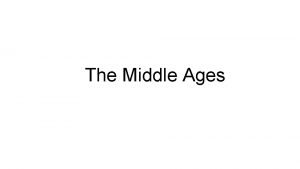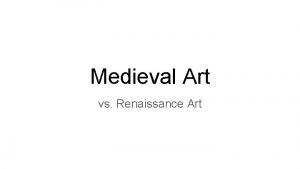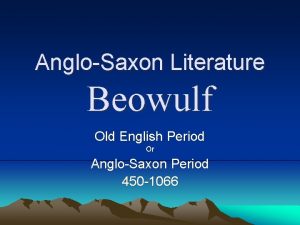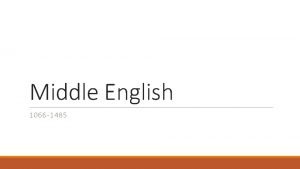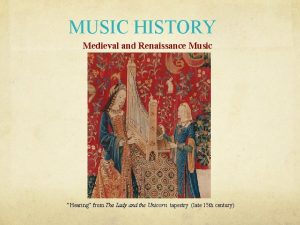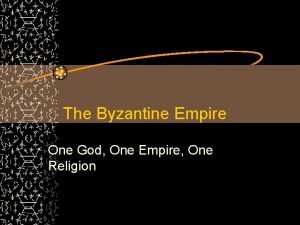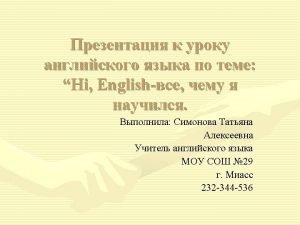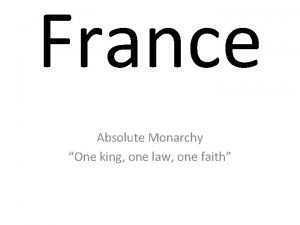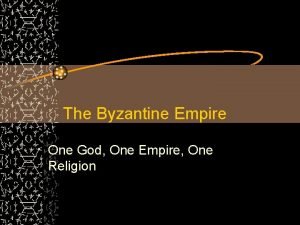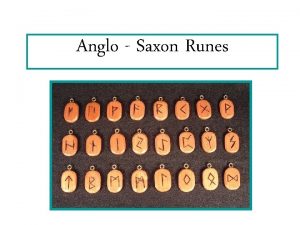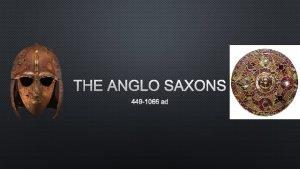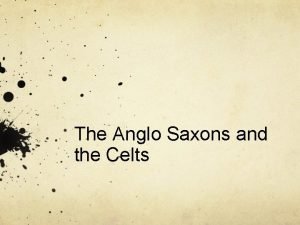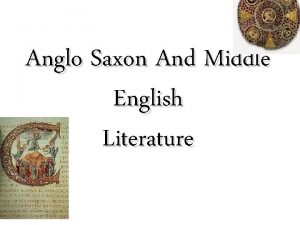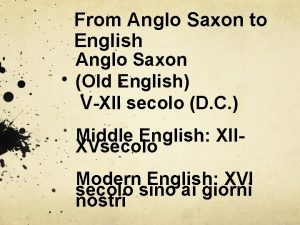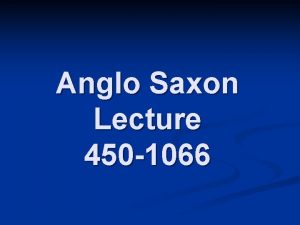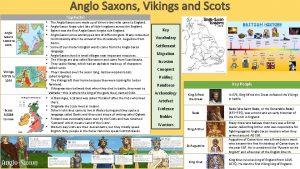The Anglo SaxonMiddle Ages Part One An Introduction















- Slides: 15

The Anglo Saxon/Middle Ages: Part One An Introduction to Beowulf

• Time period: 449 -1066. • According to tradition, the first people who came to the region were Germanic Invaders known as Jutes, from the Jutland Peninsula of Denmark. Then came the Angles and Saxons. These Germanic Tribes brought with them a common language, Old English or Anglo-Saxon.

Anglo-Saxon England was broken into different kingdoms: Essex, Kent, Wessex, Northumbria, East Anglia, and Sussex. They organized themselves in an effort to keep out the Vikings.

Civilization • Anglo-Saxon society was well-developed from the family unit out to the clan to the tribe then out to the kingdom. • The hierarchy worked in the following manner: Family Unit Clan Family Unit Kingdom Clan Family Unit

Civilization cont. • Anglo Saxons liked to hold meetings so people could openly express what they thought and felt. • This is a bit of a democratic state or habit of mind a precursor of today’s democratic process. • A misnomer about Anglo Saxons was that they were a warring people. They were also artistic and produced pieces such as ornamental bracelets, brooches or pins, of exquisite design and workmanship. They were artists, poets and had men of great learning.

Civilization and its Lasting Legacy • One aspect of Anglo Saxon civilization that survives into modern society are the names of certain weekdays. They are derived from the names of old A-S gods: Tuesday, Tiw-God of war, Wednesday, Woden-chief Teutonic god, Thursday, Thor -god of Thunder, Friday, Frigga-goddess of the home. • Many basic American traditions in law, conduct, outlook, language and literature

Heroism: Heroes and Role Models • Shortness of life or life span caused people to admire men of outstanding courage and heroism, regardless of their tribe. • Loyalty to leader and tribe and fierce personal valor were necessary for the survival of all. People of rank were treated with courtesy. • The ruler was to treat those who were loyal with generosity and the followers then remained loyal. • Heroic human will and courage allowed individuals to control their own response to fate and win fame and become models for others.

Literature • Poetry was an oral tradition. Poems were frequently sung or accompanied by a harp. Poetry was not written down until a much later period. • Scop: professional poet and the memory and historian of the tribe. He needed to remember the history, kings, battles and folklore of the tribe. The oral nature necessitated that the scop know alliteration and could drum a strong beat.

Literature cont. • The two most important functions of poetry were heroic tradition and elegiac tradition (mourning the passing of earlier or better times). • Eventually, Christian traditions replaced pagan traditions of the tribe. • Poems that were generally written during this time period were written in Latin by churchmen (Most of the public during this time were illiterate and could not read and

Literature and Society One of the first people to use written English as opposed to Latin during this time was King Alfred the Great who used English to write the Anglo-Saxon Chronicle, the first written record to be kept in English. This record showed that Alfred kept diplomatic ties with neighboring kingdoms; sent embassies to Rome; corresponded with the Patriarch of Jerusalem; formulated a code of law and

The History Behind Beowulf • The most important single poem of this time period is Beowulf. • It is England’s heroic epic. • The only surviving manuscript of Beowulf dates from around 1000, but the work itself was probably composed sometime during the 8 th century.

The History Behind Beowulf cont. • Beowulf recounts the exploits of 3 rd or 4 th century Geats and Danes which is based on earlier unwritten stories that had been passed from generation to generation by word of mouth. • The Anglo-Saxons of Britain shared a common group of heroes with other Germanic peoples, and Beowulf has his origins in an earlier, pagan era. • The author of the written version seems to

The Epic Poem Beowulf • Beowulf, like all epic poems, is about a hero who becomes leader of his people. • The hero is larger than life. • The general tone of the poem is somber, owing to a vision of evil in the world, a belief in the power of Fate (Wyrd is the Old English word for fate) to rule human destiny, and resignation to the certainty of death.

The Epic Poem Beowulf cont. • The opening of the poem tells about the ancestors of the Danish king, Hrothgar wins great fame and wealth in battles. He builds a mead-hall call Herot, to commemorate his victories. The mead-hall is so called because of a popular drink, mead, a fermented liquor, which was drunk at banquets and celebrations. • Herot is also intended to be a place of peace and community. It is a symbol of the loyalty and interdependence of the lord and his faithful warriors. However, Fate has the monster Grendel in store for the Danes.

An epic hero: 1. is significant and glorified; Throughout the epic 2. is on a quest; poem, the 3. has superior or superhuman protagonist, Beowulf, strength, intelligence, and/or is considered an courage; epic hero. This is for more than his larger 4. is ethical; than life stature. 5. risks death for glory or for the greater good of society; 6. is a strong and responsible leader; 7. performs brave deeds; 8. reflects the ideals of a Beowulf, the Epic Hero
 Dark ages vs middle ages
Dark ages vs middle ages Renaissance vs medieval art
Renaissance vs medieval art Anglo saxon literature beowulf
Anglo saxon literature beowulf The middle ages 1066 to 1485 unit introduction
The middle ages 1066 to 1485 unit introduction The middle ages spans nearly one thousand years
The middle ages spans nearly one thousand years One god one empire one emperor
One god one empire one emperor One one one little dogs run
One one one little dogs run One king one law one faith
One king one law one faith One god one empire one emperor
One god one empire one emperor Ford one plan
Ford one plan See one do one teach one
See one do one teach one One price policy
One price policy Structure of twelfth night
Structure of twelfth night See one do one teach one
See one do one teach one One vision one identity one community
One vision one identity one community One vision one identity one community
One vision one identity one community
